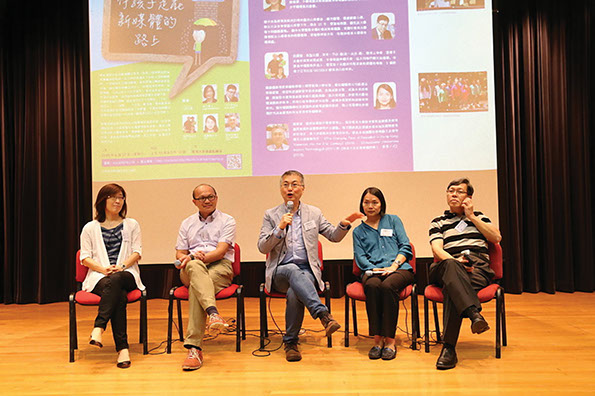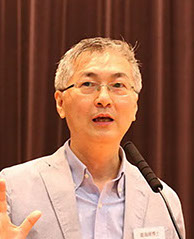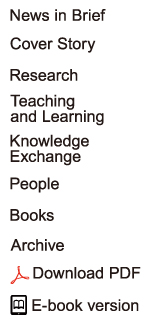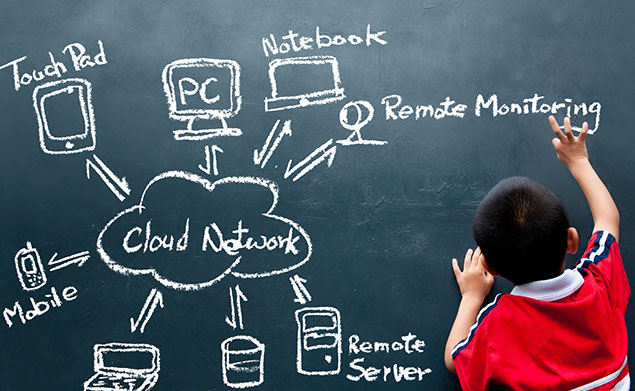Closing The Digital Divide
The digital divide is not only about the gap between schoolchildren with access to information and communications technology and those without, it’s also about how they use that technology.
When information and communications technology (ICT) was first widely used in education, the perception was that it would be a liberation for the underprivileged, bridging the gap between poor and rich as the former would have equal access to information and knowledge. That didn’t happen.
Instead a ‘digital divide’ opened up – the gap between those who had access to technology and those who did not – a phenomenon that raised questions of equity of access. In Hong Kong most students do have access to ICT, but another divide has also opened up – in the way it is used.
Dr Allan Yuen Hoi-kau, Associate Professor in the Faculty of Education and Director of the Faculty’s Centre for Information Technology in Education, who has done extensive research in this field, said: “The phenomenon of a digital divide has put a spotlight worldwide on the whole equity of access question, but what we are seeing in Hong Kong shows that this is not the only issue. It is more deep-rooted than simply the availability of equipment – as in so many other areas of life, it is the
socioeconomic factor that still dominates.”
Dr Yuen has led to a two-year study of ICT habits in school-age children and found that parental guidance is an essential element in helping children use computers and the internet properly and creatively. His research team followed the digital habits of 22 families with school-age children for one year. The children were from Primary Two to Secondary Five, and the research team recorded their ICT usage and interviewed their parents, teachers and classmates.

An education seminar titled ‘Walking through IT Pathway with Kids’ was held at HKU in June, 2015.

![]() With the advent and establishment of information and communications technology in education, the boundaries between family and school are blurring. Students can learn in many ways now… and they can learn anywhere.
With the advent and establishment of information and communications technology in education, the boundaries between family and school are blurring. Students can learn in many ways now… and they can learn anywhere. ![]()
Dr Allan Yuen Hoi-kau
‘Celebrating users’
Of the 22 students studied, five were classified as ‘celebrating users’ with a positive attitude towards internet and digital usage; 10 were coping users, whose usage was restricted to ‘after homework is done’; and seven were ‘struggling users’ – all of them secondary school students and none of them used ICT for learning or creative purposes at home.
The struggling users were all from low-income and / or troubled families where parents typically had less time to provide guidance than parents from higher-income families.
The research revealed that high- socioeconomic-status (SES) families in general have good usage – the parents are better educated and therefore able to nurture and guide their children. But in low-income families ICT usage is often not positive – there are risk factors and ethical problems in using computers.
Dr Yuen feels the most important implication of the study is that the influence of parents is far more important than that of schools. And it is not just a question of whether a parent is tech-savvy or not, more critical is the culture fostered at home regarding digital use.
As part of the research, Dr Yuen and his team also held Knowledge Exchange project workshops for parents of students ranging in age from kindergarten age right through to secondary school.
Based partly on these workshops and on the study, he recently published a book, Walk with Your Kids on the New Media Paths. The book comprises 10 parental strategies to help families navigate the digital dos and don’ts. “We thought why not do something for the parents,” said Dr Yuen. “We hope this will help them fill the gap between what their children learn at school and how they use computers at home. The ultimate aim is to help parents to nurture the younger generation in the ICT age.”
Published in Chinese, the book includes quotes from parents and students involved in the study and workshops, which Dr Yuen hopes will make the book more accessible and help readers identify with the problem.
In addition to the parental role, the digital divide also raises important questions about government policy on ICT in education. Dr Yuen has drawn up a set of policy implications, with recommendations including introducing measures to promote positive and quality usage of technologies; building ‘cultural capital’ for students from low-socioeconomic-status families; and providing help to parents.

Walk with Your Kids on the New Media Paths offers 10 parental strategies in the digital era.
“With the advent and establishment of ICT in education, the boundaries between family and school are blurring,” he said. “Students can learn in many ways now – and these are often better and more interesting ways than they were taught in class previously – and they can learn anywhere.”
He emphasised that there has been a paradigm change in that students today don’t look primarily to their teachers when they want to learn, they open their mobile devices.
“Digital equity is not only about the distribution of teaching or technology resources,” said Dr Yuen. “It is necessary to look beyond the cognitive aspects to the social, cultural and contextual factors in order to ensure ICT in education is an asset to all.



